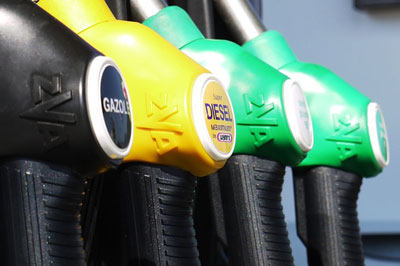
The development of the automobile is an interesting tale that throughout time has translated from actual horse-drawn carriages to fictional horses under a hood. Every year it seems the technology is changing and vehicles come equipped with more horsepower powered by better fuel economy. Auto shops and car repair locations are continually educating themselves in order to keep up with the newest trends and mechanics of every make and model.
New fuel options are becoming more readily accessible to car owners, including E-85 ethanol and even natural gas but two remain dominant in the industry. Both gasoline and diesel fuels have dominated the industry since the beginning and are likely to continue their stronghold despite efforts for decreased emissions and increased fuel economy.
These two fuels have provided consistent service and ready availability throughout history as mother nature provided the basis for each. But concerningly, fossil fuels and crude oil are a nonrenewable resource meaning once the earth’s supply has expired, no new elements will be a
vailable. For these reasons, scientists and others have been searching for a more sustainable option, but for the foreseeable future both gasoline and diesel will continue to dominate.
Both operate on a four-stroke combustion cycle but the steps and application of air and fuel are exchanged. These strokes have been detailed by Marshall Brain of howstuffworks.com.
- Intake stroke -- The intake valve opens up, letting in air and moving the piston down.
- Compression stroke -- The piston moves back up and compresses the air.
- Combustion stroke -- As the piston reaches the top, fuel is injected at just the right moment and ignited, forcing the piston back down.
- Exhaust stroke -- The piston moves back to the top, pushing out the exhaust created from the combustion out of the exhaust valve.
GASOLINE
Gasoline engines operate in an exact opposite fashion from their diesel counterparts. The gasoline
is first mixed with air and compressed by the pistons prior to being ignited by sparks from the spark plugs.
This powers the engine and makes the car function properly. Gasoline normally comes in three available octane levels at most every fueling station. These include 87-Unleaded, 89-Plus, and 91-Premium with each offering a slight difference between regular and
premium. A more efficient and cleaner burn inside the combustion chamber increases with each octane level and as a result, each step also includes a slight cost increase.
DIESEL
Opposite of gasoline engines, diesel motors first compress the air prior to injecting the fuel. Often viewed as a more efficient method of combustion, diesel engines typically will last two-times longer than a gasoline version.
In cars, diesel engines often record greater miles per gallon than gasoline petrol but
fuel management for trucks is a different issue. Often the difference between cost per gallon and fuel economy will be negated when dealing with medium to heavy duty trucks with gasoline versus diesel engines.
T
he experts at
Mancinelli’s Auto Repair Center can help whether your vehicle’s engine is powered by gasoline or diesel fuel. Both you and your automobile will receive first-class care as all necessary inspections or service will be completed by one of the many ASE certified technicians on hand to help you. Most services can be administered the same day so
request an appointment online or call today.